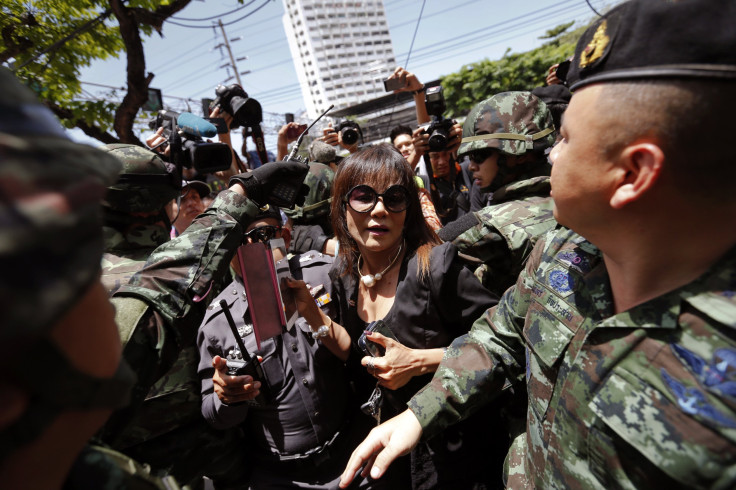Thailand-China Submarine Deal: US Taking A Backseat To Chinese As Superpower Influence

A controversial billion-dollar submarine deal between China and Thailand has aggravated relations between the U.S. and Thailand, which could potentially disrupt the greater U.S. naval “pivot” in the region, reports indicate. Thailand’s military junta-led government approved the purchase of three attack submarines earlier this month from China, bridging military ties with Beijing as Washington took a step back.
Historically, Bangkok has been a crucial ally to American forces in the region and has been key to the U.S. military's "Asia pivot," which relies on regional alliances as a tool to maintain peace in the region. However, relations have been strained since a military coup in 2014 ousted Prime Minister Yingluck Shinawatra and put Prime Minister Prayuth Chan-ocha in office. Now, economic and military bilateral relations between Beijing and Bangkok continue to strengthen as relations with the U.S. take a backseat. The U.S. State Department has expressed reluctance to work with Prayuth, linking him to human rights violations and other abuses of power. During the political instability following the coup, the U.S. also scaled back from its annual joint military exercises with Thailand, called Cobra Gold, and postponed discussion of further training exercises, leaving room for Beijing to fortify ties.
“The U.S. is giving the junta the cold shoulder, apparent during the Cobra Gold Exercise,” Martin Sebastian, head of the Center for Maritime Security and Diplomacy at the Maritime Institute of Malaysia, told Defense News.
Royal Thai Navy hearing submarine sales pitches from #China #Russia and #southkorea http://t.co/TDiwdr1Un8 #Thailand pic.twitter.com/1ia2kbeybU
— Dan Darling (@DanielRDarling) January 19, 2015“Thailand’s relations with China have been strong, and it seems that Beijing incrementally steps up its ties with the Thai military every time Washington pulls back,” Ernest Bower and Murray Hiebert, Southeast Asia experts at the Center for Strategic and International Studies, wrote in a research note late last month, adding that “Thailand-U.S. relations have been in a deep freeze.”
The submarine exchange has even raised questions among Thai defense experts, who call Bangkok and Beijing’s budding military relationship “alarming.”
“Edging closer to China is understandable, even necessary, but buying submarines from the Chinese is something else much more alarming when other bidders such as Germany or Sweden seemed to make more sense,” Thitinan Pongsudhirak, director of the Institute of Security and International Studies at Bangkok’s Chulalongkorn University, said in the same report, adding that the submarine purchase ups the “geopolitical game into a new alarming level.”
"Evidently, Thailand’s military government has found superpower support in Beijing, as China has embraced Thai generals in both coups in 2006 and 2014,” Pongsudhirak said. “Having China on its side is hugely important to the Thai military because it confers ‘face’ and international legitimacy while Western countries generally shunned and downgraded dealings with Thailand.”
© Copyright IBTimes 2024. All rights reserved.




















